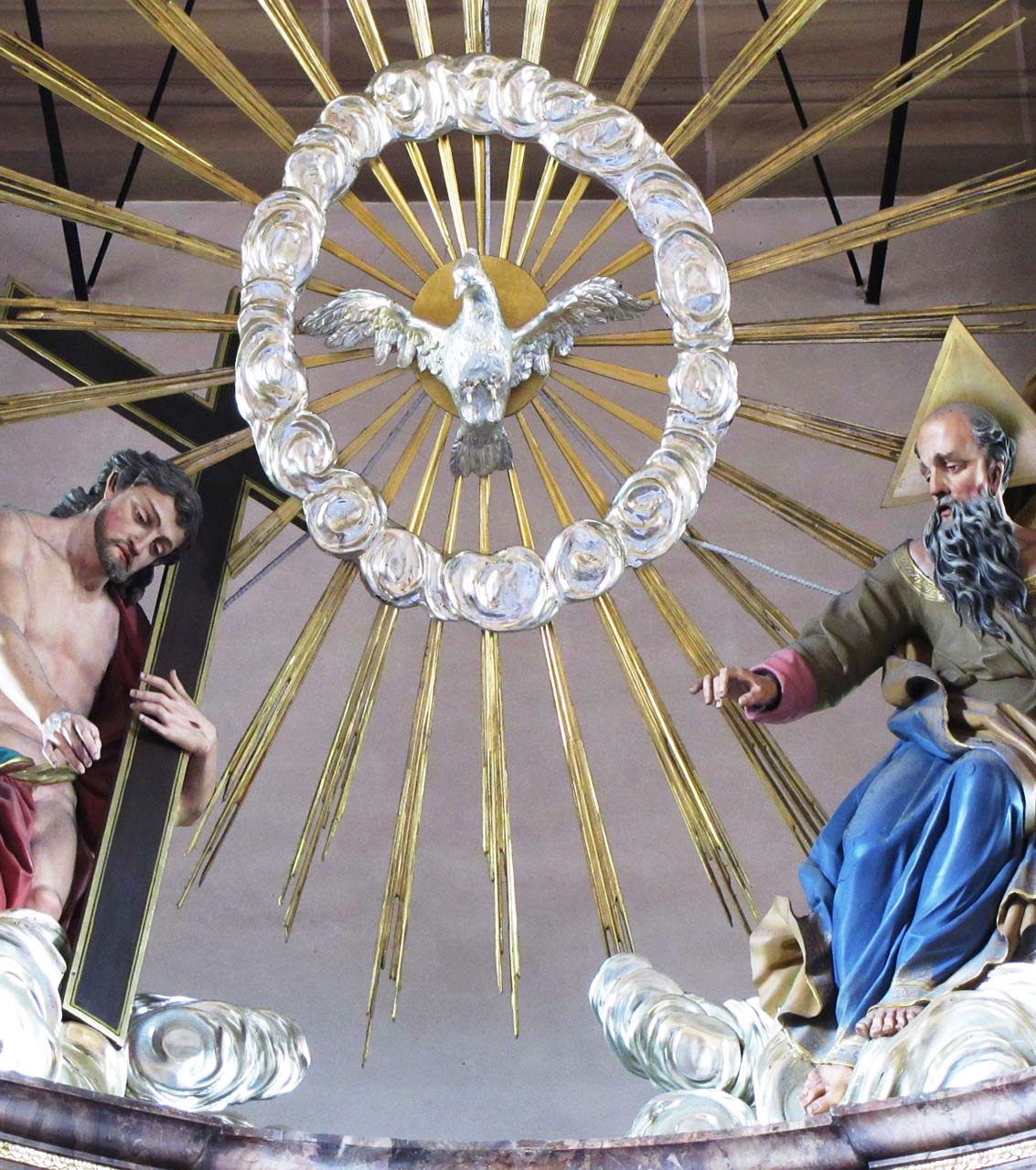 Proverbs 8:22-31
Proverbs 8:22-31
 Rome 5:1-5
Rome 5:1-5
 John 16:12-15
John 16:12-15
Last year, my reflection on the Holy Trinity touched upon its ineffable mystery and its efficacious signs on those who bear its seal. Today, let us look at the importance of the oneness of the Trinity (cf CCC253) in regard to our salvation.
The Trinitarian doctrine teaches us that all three Persons of the Trinity have the same essence and nature (ontologically/immanently) but in relation to the world, each One has different roles or activities: the Father creates, the Son redeems, the Holy Spirit sanctifies. Thus they are co-eternal, co-equal and co-powerful----“none is afore or after another: none is greater or less than another” (Athanasian Creed).
While there is no problem in acknowledging God the Father as “the source and origin of the whole divinity” (CCC245), the problem lies in the recognition of the other Persons of the Trinity. The affirmation of the creed is crucial because if God the Son (second person of the Trinity) is not totally God Himself, His redemptive work would not have any salvific value and He could not be our Savior and the Lamb who “takes away the sin of the world” (Jn 1:29). His resurrection, though astounding, would not have brought hope and life for “if it were simply that somebody was once brought back to life, and no more than that, in what way should this concern us?” (Pope Benedict XVI’s Easter Vigil homily, 2006). The Christology of St Paul and his letters to the Romans and the Galatians would then be considered as deceptive for we would not be saved by faith nor be justified before God through Jesus Christ, the Son of God. In short, if the second person of the Trinity is not fully God, then there would be no assurance of salvation, no reason to hope and no new life to come.
In like manner, if God the Holy Spirit (the third person of the Trinity) is not totally God Himself, then He could not be called the “Spirit of Truth” (Jn 14:17; 16:13, 1 Jn 5:6) and neither could He sanctify (Ex 31:13, Jn 17:17-19, Rom 15:16, 1 Cor 6:11, 1 Pt 1:2, 2 Thes 2:13). He could not “teach all things” (Jn 14:26), “bear witness” (Jn 15:26), “convict sin” (Jn 16:8-9), “declare things that are to come” (Jn 16:13) and “forgive sins” ( Mt 12:31-32, Jn 20:21-23) for only God alone can do all these things-----“what person knows a man’s thoughts except the spirit of the man which is in him? So also no one comprehends the thoughts of God except the Spirit of God” (1 Cor 2:11). In short, if the third person of the Trinity is not fully God, then what was told of the Holy Spirit by Jesus to His disciples before His departure from the world would be at best, a consolation and at worst, a lie (Jn 14:15-17).
Yes, the mystery of the Trinity is hard to comprehend but that does not mean it is not credible. It is just too profound for us that it surely takes more than our present lives to understand it. As Christians, we are saved not by perfect understanding of God but by having faith in Him. Not only should we be happy to live in this mystery but we should try to live up to it in the hope that we will discover this mystery face to face upon our leaving from this world.
